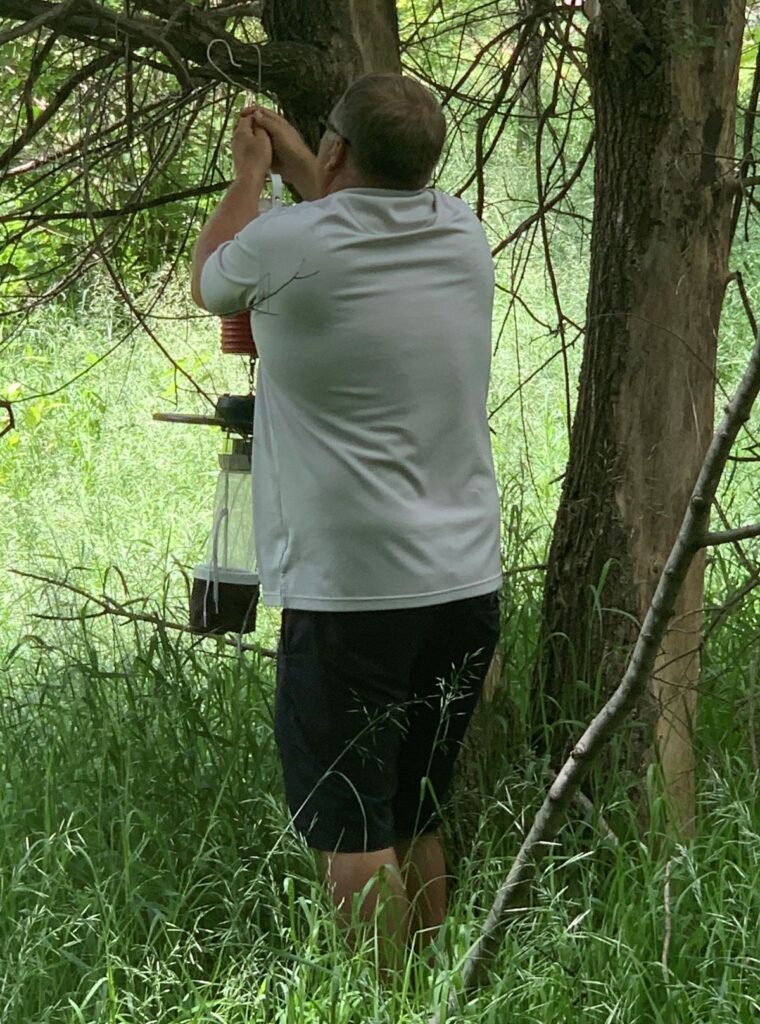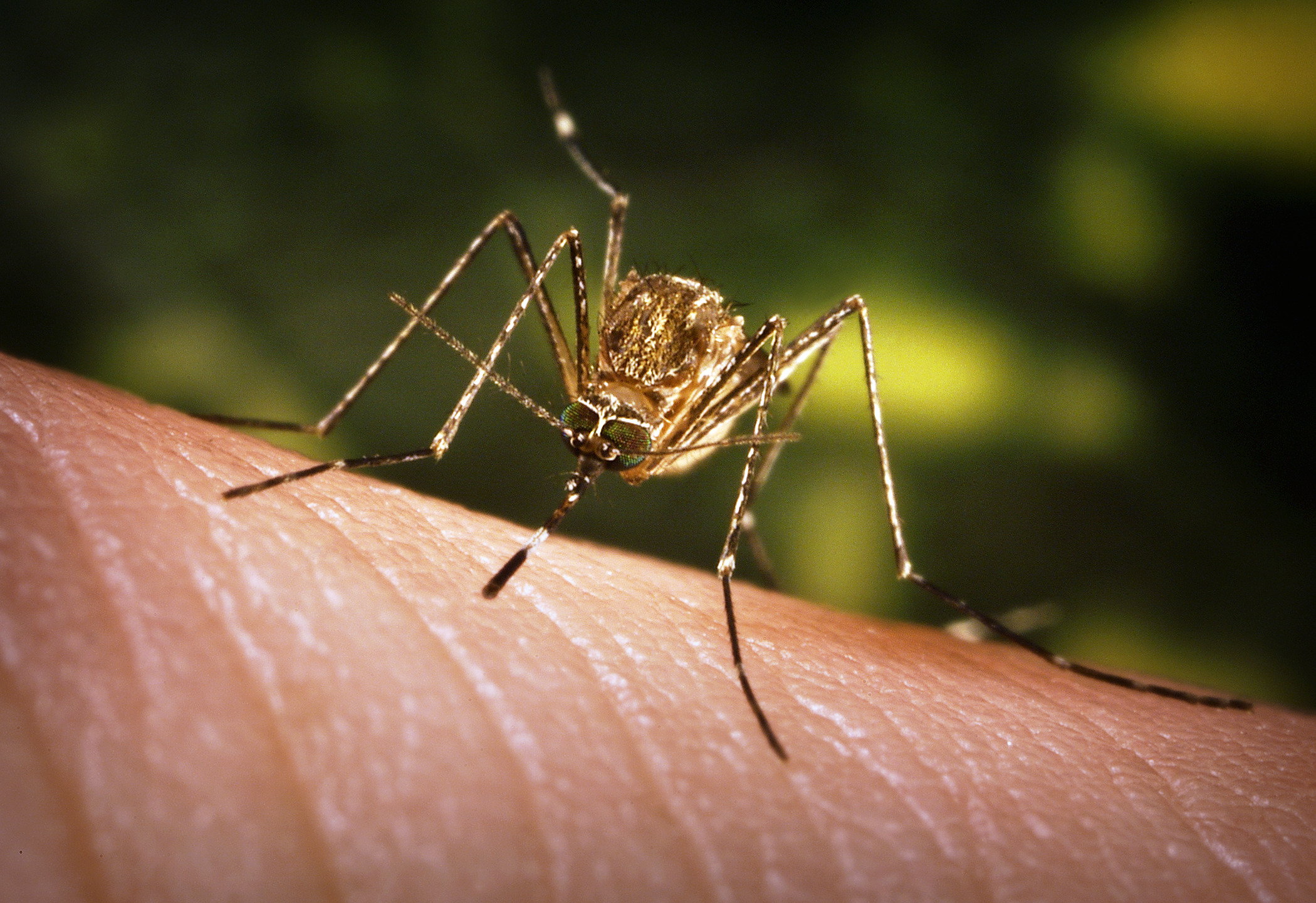Bob Decker thought he’d get an early start on golf one morning this summer when he headed to Omaha’s Steve Hogan Golf Course.
Instead, he ended up providing swarms of mosquitoes their breakfast, lunch and dinner during his round at the nine-hole course.
“I was slapping mosquitoes off my legs the whole time,” he said. “Thus the reason for my poor score …”
Decker wasn’t imagining things. Compared to last year, mosquito numbers have jumped significantly across Nebraska, nearly doubling in mid-July. What many people see as a pesky nuisance though, could carry serious consequences, particularly as Nebraska moves into peak season for the mosquito-borne West Nile virus.
The numbers have drawn concern from public health officials. But the future poses more cause for alarm.
Human-caused climate change is extending the season and range of mosquitoes globally. The world’s deadliest animal, mosquitoes are feared for the diseases they spread in tropical regions. But even places like Nebraska provide a fertile home for certain disease-bearing species. And there are expectations that will worsen.
“If we’re talking climate change, obviously it plays a role in mosquito numbers,” said Justin Frederick, deputy health director of the Douglas County Health Department. “The warmer the climate gets, the more we see these viruses spreading.”
This year, the number of mosquitoes captured in traps in Nebraska is 66% higher than last year and remains above the five-year average, according to the Nebraska Department of Health and Human Services. Mid-July, numbers spiked about 90%, according to the state.
The numbers matter because mosquitoes, along with ticks, can carry debilitating, even fatal diseases, said Jody Green, an urban entomologist and extension educator with the University of Nebraska-Lincoln Extension in Douglas and Sarpy counties.
“These two are really important, these are two things that can make people sick – they can really impact the health of Nebraskans,” she said. “It’s an important story, it’s the reason I have this job. I can help save people’s lives, I can help protect their health.”
The top concern with mosquitoes in Nebraska is West Nile virus, but the state is monitoring for other dangerous mosquito-borne viruses given their potential to migrate into the state.
Most people who contract West Nile don’t realize it. According to the U.S. Centers for Disease Control and Prevention, an estimated 70% to 80% of people with West Nile show no symptoms.
But in a small number of cases it can be fatal. Of the 2,566 cases reported nationally in 2023, 1,840 required hospitalization and 182 died, according to the CDC.
Omaha resident Jenna Everhart still mourns the loss of her friend Crystine Dozier, who was immunocompromised and died from West Nile in 2020. Everhart said she no longer spends as much time outdoors during the summer.
“You don’t think about a mosquito being able to kill you until it happens to someone you know,” she said.
This year, the culex mosquito, the species responsible for West Nile virus, showed up in the Omaha area in June, much earlier than the typical timeframe of mid to late August, Frederick said. Douglas County also in June saw the state’s first documented case of West Nile for the year.
As of the week ending Aug. 3, Nebraska has seen 14 reported instances of people contracting West Nile. Of those, eight required hospitalization.
Statewide, the Nebraska Department of Health and Human Services considers the current threat of West Nile to be moderate, but high in southeast and northern Nebraska.
Mosquito-borne viruses have been in the headlines in Nebraska in recent years.
Public health officials mounted concerted extermination campaigns after Aedes aegypti, a species native to tropical regions, was discovered in traps in York in 2019 and Fairbury in 2020.
Because this type of tropical mosquito can spread illnesses such as chikungunya, dengue, Zika and yellow fever, officials moved quickly to eradicate it. The species has not been found in Nebraska since then, “so there’s no need to panic,” Green said.
In July, Douglas County recorded the presence of Jamestown Canyon virus for the first time in state history. The mosquito-borne virus is often mild, but it can cause serious illness, including inflammation of the brain and spinal cord.
Nebraska’s recent string of generally wet years and its trend toward warmer than average years has given it a taste of how climate change can fuel mosquito populations.
According to the U.S. Environmental Protection Agency, studies show that in a warming world, mosquitoes mature and reproduce faster, bite more and incubate diseases more easily.
Researchers theorize that wetter than average weather in Nebraska contributed to the introduction and survival of Aedes aegypti in York five years ago.
Research also has found a correlation between alternating wet and dry spells with West Nile outbreaks.
That wet-dry pattern was suspected of contributing to Nebraska’s spike in West Nile cases in 2018. That year, Nebraska was among the handful of states leading the nation in West Nile cases. Thirteen people died from the virus, 113 were hospitalized and a total of 251 were confirmed infected, according to the state.

In general, the Great Plains – known for extreme fluctuations in weather – has the nation’s highest incidence of West Nile, when adjusted for population, according to the CDC.
Officials stressed the importance of monitoring for mosquito-borne illnesses, which involves state and local governments setting traps and analyzing the insects collected.
Green credited surveillance efforts with discovering the presence of Aedes aegypti in 2019 and 2020.
Frederick said the discovery of the Jamestown virus was made possible by extra funding that allowed public health officials to test for the virus. The type of mosquito that carries the virus was known to exist in Nebraska, but the virus itself was a surprise, he said. It was found in a trap in Lake Cunningham.
None of the tests elsewhere in the state have found the Jamestown virus and no human cases have been reported, according to the Nebraska Department of Health and Human Services.
Knowing that the virus is present is important, Frederick said, because it can help doctors understand why a patient is ill.
Whether it’s West Nile, the Jamestown virus or some other potential illness, Green said the best solution is to avoid getting bitten. Drain standing pools of water; wear long-sleeved shirts, pants and socks; keep your shirt tucked into your pants; use EPA-approved mosquito repellants; and if you are out on the deck or patio, turn on an oscillating fan so mosquitoes can’t land on you.
For her part, Everhart says she wishes that researchers could come up with a “quick fix” so that mosquitoes aren’t a threat.
“I was a very outdoorsy person,” she said. “I’m hypersensitive to mosquitoes, and I feel like I can’t do anything fun outside anymore.”



3 Comments
We planted citronella in our back yard and it has helped get rid of the mosquitos almost entirely. The used to swarm us the second we went out there.
Thank you for this article. Vitamin B1, thiamine, has been used to repel mosquitoes for some. You might see if it helps!
Good information. There is always the danger though that the fear of insect pests will cause people to call for widespread spraying of insecticides which I think have much more potential for harm.